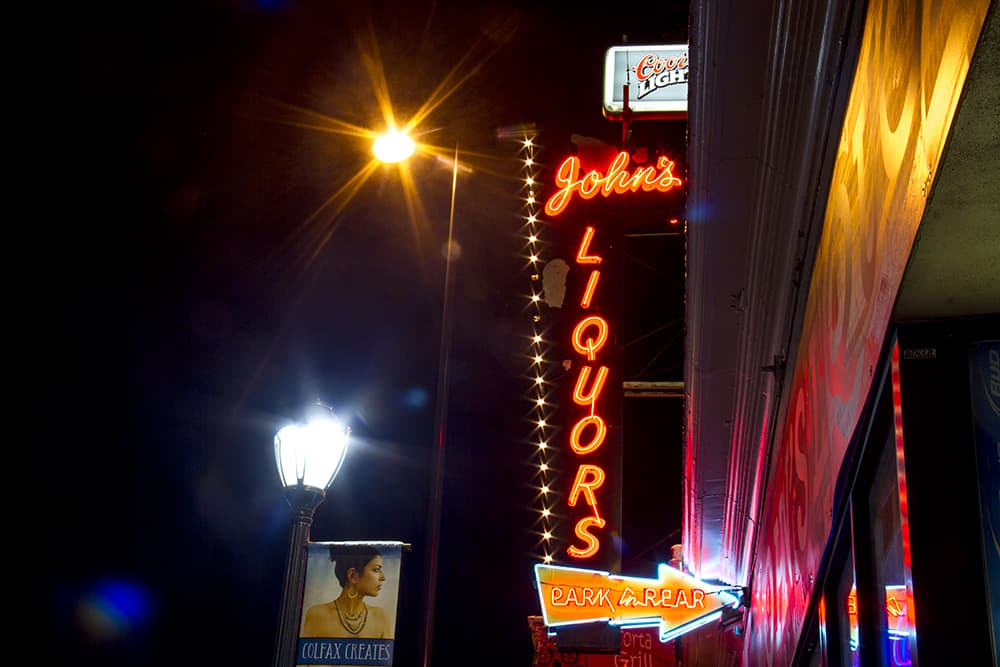Earlier this week, the Colorado Senate narrowly voted down a measure that would have included Walmart alongside Kroger and Safeway in stores that can start to carry a full range of alcohol products under a historic compromise adopted last year.
The bill was pitched as a clean-up measure to correct some oversights in last year's bill, but the debate on the floor of the Senate was clearly a re-litigation of that thorny question of how much protection small liquor stores need from big-box competitors. Opponents of the bill said allowing Walmart to sell all types of alcohol would kill small liquor stores, particularly in rural parts of the state, while proponents said Walmart and other big-box stores will never carry the wide variety of products that liquor stores do and that liquor stores are prepared to compete on selection and service.
There was no clear partisan divide in the votes, with Democrats and Republicans coming down on both sides of the issue, but when Senate President Kevin Grantham cast the deciding no vote for the 18-17 defeat of the bill, there was a "what the heck just happened?" buzz in the Senate chamber.
Well, the Colorado Statesman has an interesting look at that question today after interviewing a number of lobbyists. One of the questions Monday was whether Walmart really was at the table last year or was trying to slide in under a provision meant for other players in the market. After all, Walmart has such deep pockets, surely their lobbyists wouldn't have let them be left out of the final legislation.
“Obviously we wouldn’t have had a liquor bill last year if Walmart wasn’t involved. They’re the ones that pulled the funding from the ballot issue and came to the negotiating table," Micki Hackenberger, a lobbyist representing the Wine and Spirit Wholesalers of Colorado, told the Statesman.
If you'll recall, big-box retailers were planning to run a ballot measure or measures to open up the liquor market in Colorado, and the compromise allowed for a more gradual transition and buffers between grocery stores and liquor stores. In exchange, the ballot measures were shelved.
“We were the only grocer for a while that thought the compromise was the right way to go,” said Josh Phair, Walmart's public affairs rep, “so for us to negotiate a bill that benefited our competitors but not us, that just doesn’t pass the laugh test.”
Proponents of the bill accused lobbyist Jason Hopfer, who represents a number of larger liquor stores, of a "misinformation" campaign about the bill. Hopfer, of course, said it was just an information campaign.
Meanwhile, there remains a number of other things that need to be cleaned up from last year, including allowing 18-year-olds to continue to serve liquor in restaurants with attached bars and allowing people with EBT cards to use those cards at grocery stores with liquor licenses.
Hopfer, meanwhile, is advocating for a bill that would allow liquor stores to amass a larger number of liquor licenses.
Speaking to reporters Wednesday, Gov. John Hickenlooper said his impression last year was that Walmart only wanted to sell full-strength beer -- this is how many legislators said they remembered it -- but he also said that with all the moving pieces in the liquor license legislation, he wasn't particularly focused on the Walmart piece.
State Sen. Angela Williams, a Denver Democrat and a sponsor of SB 143, the bill that died Monday, said she's talking to leadership about reintroducing legislation that would allow Walmart to sell wine and spirits as well. If the issue doesn't get resolved, there's some possibility Walmart could try to revive a ballot measure for 2018.













